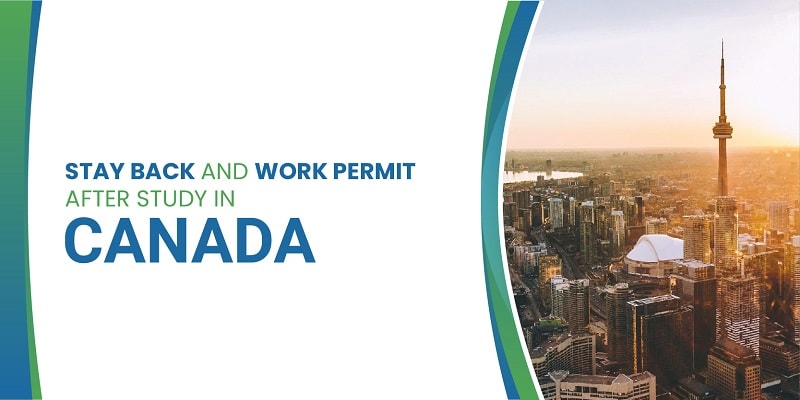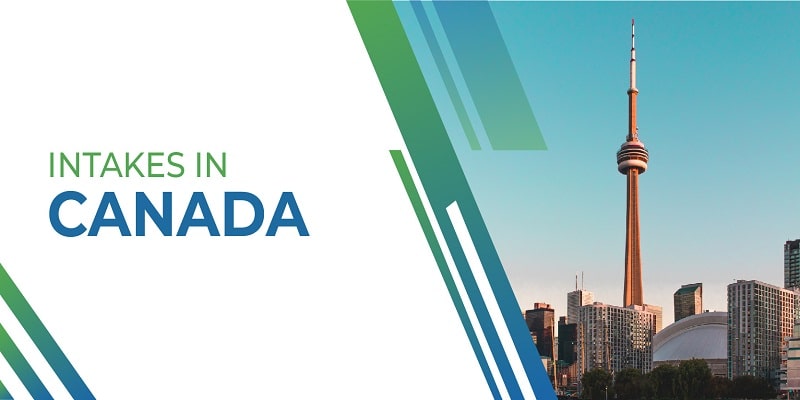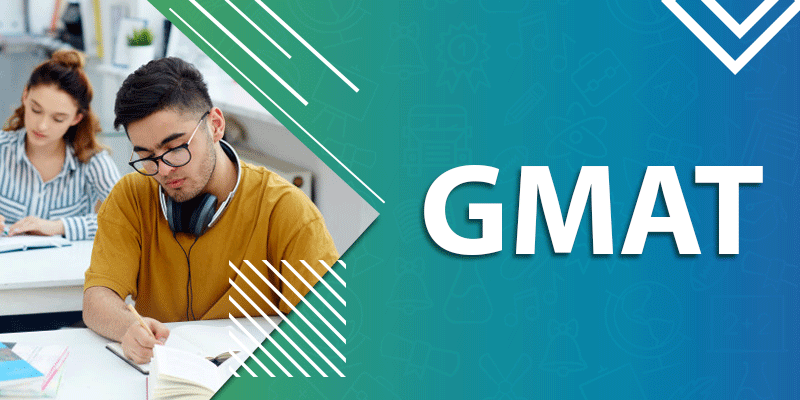GMAT
Exam
GMAT Full Form: Graduate Management Admission Test
The
GMAT
(Graduate Management Admission Test) is designed to assess the
students aiming to join the MBA (Masters in Business Administration) program or
Masters in Finance related courses. The exam tests the writing, analytical,
verbal, quantitative reasoning, and reading skills of the candidate in standard
written English language.
More
than 1500 graduate business schools around the globe require GMAT scores for
admission. It is a computer-based exam. However, in some remote places, the
paper-based system is still followed. GMAC (Graduate Management Admission
Council) is responsible for the design and administration of the GMAT. It
determines the kind of skills measured by GMAT and what methods can be adapted
to measure them. It decides the GMAT format and GMAT question paper
pattern.
Computer Adaptive Test
GMAT
is a computer adaptive test. A computer adaptive test means the questions are
not pre-determined. The exam assess the candidate’s adequate difficulty level
and then puts the question before him.
For
example, the first question in front of you will be of average difficulty. If
you answer it correctly, then the next question will be of slightly higher
difficulty. If you answer is wrong, the question will be of lower difficulty.
The same algorithm is set for the second question, and third, as so on.
Because
it is a computer adaptive test, and your answer determines the level of next
question, you are not allowed to go back to the question you have once
answered. Only the number of correct answers do not indicate your score. The
hard questions hold more GMAT scoring points than easier questions.
Executive Assessment
GMAT
assessment is an exam by GMAC for the EMBA programs. EMBA stands for Executive
MBA. EMBA is a short duration program for working professionals who want to
improve their managerial and leadership skills but do not want to change the
direction of their career much. EA exam is called mini-GMAT exam. EA exam
focuses more on Integrated reasoning, more suitable for experienced candidates.
GRE vs GMAT
While
GRE is a common examination for Graduate Record Examination, GMAT is more
weighted and focused towards management abilities of the candidates. Graduates
who want to study in any MBA or Management program mostly take GMAT.
As
per the Test-takers, GRE holds a higher level of English language and GMAT has
a higher level of quantitative problems compared to each other. However, for
both the subjects, interpretation abilities change from individual to
individual and you should check with the institute you are applying before
deciding onto one.
GMAT Eligibility
There
are no eligibility criteria set by the GMAC. However, there are eligibility
criteria set by the universities and schools for admission.
Age Criteria:
- The candidate must have completed
18 years of age.
- There is no upper age limit.
- If the applicant is between 13 to
17 years old, they should have written permission from their parents or
legal guardian.
Qualification Required
- The candidate is required to
possess a graduate degree from a recognized university/institution in any
discipline.
GMAT Exam pattern
The
GMAT exam duration is 3 and a half hours. GMAT exam pattern has four
section types. The GMAT structure aims to assess the skills of the candidates
in writing, analytical, verbal, quantitative reasoning, and reading. The GMAT
sections are:
- Analytical Writing Assessment
- Integrated Reasoning
- Quantitative
- Verbal
The details about the GMAT exam pattern and score are given
below. The GMAT exam total marks are 800.
Subject
|
Type
of Questions
|
No.
of Questions
|
Time
Duration
|
Verbal
|
- Reading Comprehension
- Sentence Correction
- GMAT Critical Reasoning
|
36
|
65
|
Integrated
Reasoning
|
- Graphics Interpretation
- Table Analysis
- Multi-Source Reasoning
- Two-Part Analysis
|
12
|
30
|
Quantitative
|
- Problem Solving
- Data Sufficiency
|
31
|
62
|
Analytical
Writing
|
Analysis
Essay
|
1
|
30
|
Optional
Breaks (2 Breaks)
|
8
Minutes
|
Total:
|
3
Hours 30 Minutes
|
Analytical Writing Assessment (AWA)
The
Analytical Writing Assessment is generally known as the “essay” section. It
assesses the writing skills of a candidate. This section has only one essay
writing. This is the only segment of the test that is not multiple-choice
based. These essays are marked by a human grader and a computer grading system.
The score is then averaged for your final score. You will be given 30 minutes
to complete this section. The scores are marked in the range of 0-6.
You
will be provided with a short argument. Instead of presenting your own
viewpoint, you are required to criticise the argument and analyze the accuracy
of the author’s evidence and reasoning.
GMAT Integrated Reasoning (IR)
This
section consists of a total of 12 questions which may have multiple parts.
These are multi-source reasoning questions. A time duration of 30 minutes is
given to complete this section. The scores are marked in the range of 0-8.
Quantitative Reasoning
This
section aims to assess your basic mathematical knowledge of concepts like
arithmetic and number properties, algebra, and geometry. The range of
score is 0 to 60. There are a total of 37 questions which are divided into two question
types:
Data Sufficiency
Data
Sufficiency question type consists of a question with two statements. You have
to determine whether the given statements provide sufficient data required to
answer the question. GMAT math requires you to recognize quickly the
information you would need to solve the problem and to capably eliminate answer
choices. There are 17 or 18 questions of this type.
Problem Solving
Problem
Solving is a typical test question type. You'll be provided with a question and
five possible answer choices for it. This question type uses the math of high
school–level up to algebra and plane geometry. This is to test your critical
thinking skills. There are 19 or 20 questions of this type.
Verbal Reasoning
The
GMAT Verbal section is designed to assess your command of written English, and
ability to analyze arguments read critically. You will be provided with 75
minutes to complete this section. The scores are marked in the range of 0-60.
There are a total of 41 questions in this section. There are three question
types in this section:
Critical Reasoning
GMAT
Critical Reasoning questions test the skills in making,
comprehending arguments, and devising a plan of action. You will be provided
with a short argument or a sequence of statements and a question relating to
it. To score well in the GMAT Critical Reasoning questions, you need to
understand the structure of arguments and need to have a thorough logical
analysis of the relations between evidence and conclusions. This section
contains an approximate of 11 questions.
Sentence Correction
In
this type of questions, you will be provided with typically long and involved
sentences. A part or the entire sentence will be underlined, and you are
required to find the best adaptation of the underlined section out of the
original or one of four alternatives. The sentence may contain no or one, two,
or more errors. This section contains an approximate of 16 questions.
GMAT Reading Comprehension
These
types of questions assess your critical reading skills. More specifically,
these questions assess your ability to summarize and comprehend the main idea,
make conclusions based on information in a text, analyze the logical structure
of a passage, and infer the author's tone and attitude about a topic. You will
be provided with an academic reading passage on a topic related to social
science, business, biological science, or physical science. You will then have
to answer an approximate of 14 questions about the text.
GMAT Exam Syllabus
GMAT Analytical Writing
This section
will have topics, on which the candidate will have to write, or a passage may
be given and the candidates have to answer the questions based on it. The syllabus
for this section is huge and varied as the topic of the passage could be any
topic of general interest. You should focus on the structure of the answer and
not the arguments presented.
GMAT
Quantitative Section
The GMAT
Quant syllabus comprises the math of high-school level. GMAT maths
syllabus comprises of the following topics:
- Exponents and roots
- Elementary Algebra
- Properties of Integers
- Geometry
- Permutation and combinations
- Ratio Proportions
- Arithmetic
- Linear equations etc.
Verbal Skills
The
GMAT verbal syllabus comprises of the following topics:
- Rhetorical construction of the
sentences
- Critical reasoning
- Reading unseen passages
- Sentence correction related to
finding error or omission
- Misplace modifiers
- Subject-verb agreement
- Countable Vs Uncountable
- Parallelism
Integrated Reasoning Section
This
is the newest addition to the GMAT syllabus. This section will have
questions of the following types:
- Multi-source reasoning
- Table analysis
- Two-part analysis
- Graphics interpretation
GMAT Exam Dates 2019
You
should select a GMAT date
that will allow enough time for the processing and sending of the score to the
MBA program or business that you’ll be applying to. This process can take up to
20 calendar days. The GMAT can be taken once every 16 days, up to 5 times in a
year and up to 8 times in total.
GMAT Retake
Gap
Between Two GMAT Attempts
|
16
Days
|
Maximum
Attempts in a Year
|
5
Attempts
|
Maximum
GMAT attempts (Lifetime)
|
8
Attempts
|
GMAT Test Centres in India
Ahmedabad
|
Bangalore
|
Bhubaneswar
|
Chennai
|
Cochin
|
Coimbatore
|
Gurgaon
|
Guwahati
|
Hyderabad
|
Indore
|
Jaipur
|
Kolkata
|
Lucknow
|
Manipal
|
Mohali
|
Mumbai
|
Nagpur
|
New
Delhi
|
Noida
|
Patiala
|
Patna
|
Pune
|
Ranchi
|
Tiruchirappalli
|
Trivandrum
|
Vellore
|
Vijayawada
|
Vishakhapatnam
|
The
full list of GMAT test centers all over the world and the seat availability can
be found on the GMAT official site i.e. www.mba.com
GMAT Preparation
You
need to have a good preparation to score well in the GMAT exam. GMAT
preparation needs good concentration and dedication. You either opt
for self-study or join a coaching center according to your convenience. You can
also go for online GMAT prep with many websites providing excellent GMAT
prep materials. GMAC has its own official study guide and free GMAT prep
software for the preparation of the exam. Below are a few GMAT preparation tips
which will help you to form a good GMAT preparation strategy.
Verbal section
The
GMAT Verbal section is designed to assess your command of written English, and
ability to analyze arguments read critically
GMAT Tips:
- Practice reading comprehension: You need to practice a lot of reading comprehensions.
The efficient way to solve a comprehension is by taking one question at a
time and breaking the passage into parts. You can note down the points
which seem relevant to the answer and then select the best possible answer
for the question. This will help you to understand the passages clearly
during the time of the GMAT exam.
- Learn Grammar: It is important to have clarity in grammatical concepts
in GMAT. Practice the modifiers and prepositions. You need to pay more
attention towards the sentence correction type of questions. You need to
have a good ability of logical application and to comprehend the given
statements.
- Reading effectively: you should read a lot of books for the GMAT verbal
prep. You should read the editorial column of the newspaper daily to
improve your language skills.
Analytical Writing Assessment
In
this section, you are required to critically analyze the statements given by
the author. This section will have topics, on which the candidate will
have to write, or a passage may be given and the candidates have to answer the
questions based on it.
Tips to crack
- Create a template for your
essay: Make drafts or templates for your
essay as this is one of the fastest tricks to write essays without any
errors. Then choose the draft which is the most feasible for you.
- Practice essay writing: You should practice writing as many as many sample
essays as possible. You need to give direction to your essay. You
need to analyze your arguments and see whether they are valid or not. You
should support your arguments with examples. Then you can give your essay
a final shape by noting down your points.
Integrated Reasoning
The
Integrated Reasoning section measures your ability to make judgments, organize
and combine data to solve challenges.
Tips to crack
- Get familiar with the test format: You need to get familiar with the GMAT test format
to be able to understand the questions properly and manage your time
during the exam.
- Practice graph: This section involves graphs so practice the Venn
diagrams, charts and tables. You should learn how to analyze the graphs.
You will be able to save your time if you are able to properly understand
the graph.
- Solve sample papers: you should solve as many practice papers as possible.
They will help you to get to know the type of questions in the exam. It is
especially necessary to practice the integrated reasoning section as they
have a variety of questions.
Quantitative section
This
section aims to assess your basic mathematical knowledge of concepts like
arithmetic and number properties, algebra, and geometry.
Tips to crack
- Focus on your weak areas: You need to find out your area of strengths and
weakness. You should not give more time than necessary to your strong
area. You need to focus more on those areas in which you are not
confident.
- Clear your concepts: Practise your high-school maths as it is a possibility
that you may have forgotten the concepts necessary for the exam. You need
to re-do the basic maths and learn new tricks for solving the questions
faster.
GMAT Sample Papers
To
get access to GMAT sample questions and other GMAT mock test online, you should
register on GMAT official website.
Make an account on mba.com and you can download free GMAT Prep Software
from the website.
GMAC
(Graduate Management Admission Council), the owner of GMAT exam provides 8-week
study plan for the students who want to self-study. It is a set of
suggestions and tips for students to follow, and prepare for the exam in eight
weeks. It makes sure you make full use of the GMAT study materials and software
available.
In
addition to that, the website also has paid tools and software that run on your
computer. They provide GMAT online sample questions and online test papers.
Such tools are as listed below:
GRE
Study Materials
|
Price
|
Useful
for
|
- GMAT Official Practice Questions
|
$29.99
|
GMAT
Practice Test Questions
200
Quantitative
24
Integrated Reasoning
180
Verbal questions
|
- IR Prep Tool
|
$19.99
|
Unique
Integrated Reasoning GMAT questions
|
- GMAT Focus
|
$29.99
(single)
$79.99
(bundle of 3)
|
Real
GMAT questions for Quantitative Questions
|
- GMAT Enhanced Score Report
|
$30.00
|
Stats
and information about your performances to better evaluate your GMAT scores
and GMAT Score Calculator
|
- GMAT Write
|
$29.99
|
For
Writing ability
|
GMAT Preparation Books:
You
can start your GMAT study preparation by a complete Premium GMAT study
collection. It comprises of all online material and GMAT books. It includes six
things as listed below:
- IR Prep Tool
- GMAT Prep Exam Pack 1
- GMAT Prep Question Pack 1
- GMAT Prep Exam Pack 2
- GMAT Paper Tests Set I, II, and
III
- GMAT Official Guide Quantitative
Review
- GMAT Official Guide Verbal Review
- GMAT Focus Online Quantitative
Diagnostic Tool, set of 3
- GMAT Official Guide
GMAT Registration
GMAT
registration can be done throughout the year.
However, you should frame a strategy for the GMAT preparation before you
register for GMAT. GMAT registration can be done in both online and offline
mediums. You can give the exam anytime in the year as per your convenience.
However, since the number of applicants is increasing every year, it is
advisable that you do not wait until the last moment to register for GMAT.
You should book the slot at least a month before the desired date of making the
attempt. Especially, during the peak season of November every year, one should
try to book the slot 3-4 months prior to the desired date of making the
attempt.
You
should note that the rescheduling of the next attempt can be done only after 16
days of taking the first attempt.
Steps
to register for GMAT 2019-20 online:
- Visit the authorized GMAT official
website’s registration page at www.mba.com.
- After logging onto the GMAT
official website, you are required to fill in the required basic
information such as name, address etc.
- You then have to create an ID and
password.
- You will have to make the online
payment in the next step. The GMAT fee is $250. You can make online
payment through credit card, debit card, or net banking; according to your
convenience.
- After you have completed all these
steps, you can log in and select the date and test center to take the
exam.
Other
Modes of GMAT Registration:
1.
GMAT Registration by Phone:
You
can register for your GMAT examination via phone also. That will cost $10 extra
surcharge for registering the exam through phone.
2.
GMAT Registration by Post:
You
can register for your GMAT exams through postal mail, too. The payment of the
fess will be the same as online, and will have to be paid by cheque.
GMAT Exam Fees
GMAT
fees for students is normally of $250. However, there are other charges and
rescheduling costs that need to be consider before you register for GMAT test.
The GMAT fee structure is as given below:
GMAT
Fees in India:
|
$250
(17,716.25 INR)
|
Change
in GMAT exam date or Exam Centre
|
$50
(3543.25 INR)
|
Rescheduling
before 7 Days of Exam
|
$250
(17,716.25 INR)
|
Surcharge
(in case of Phone Registration)
|
$10
(708.70INR)
|
Conversion:
1 USD = 70.87 INR
GMAT Scholarships for B-Schools
Keep
in mind that taking the GMAT test is not the only criteria you will need to
fulfil to get a scholarship. There are many other requirements. The
scholarships are mostly merit based, or need based (for the candidates with
financial hardships). Not all the scholarships apply to all the B-schools.
Check with the institute you are applying to for the available scholarships and
eligibility criterion.
Top Business Schools with GMAT scholarships
University
/ B-School
|
Scholarships
|
Stanford
Graduate School of Business
|
The
Stanford Reliance Dhirubhai Fellowship
|
Haas
School of Business
|
Dr.
Tahir Fellowships
|
Booth
School of Business
|
The
Zonis Fellowship
|
Akhtarali
H. Tobaccowala Fellowship
|
Harvard
Business School
|
Horace
W. Goldsmith Fellowship
|
The
Robert S. Kaplan Life Sciences Fellowship
|
HBS
Fellowship Programs
|
Wharton
School of Business
|
Emerging
Economy Fellowships
|
Social
Impact Fellowship
|
Joseph
Wharton Fellowship
|
GMAT score
The
range for GMAT score varies from 200 to 800. 800 is the highest GMAT score. The
GMAT scoring is in increments of 10, for example – 700, 710, 720 and so on. The
mean score for the Quantitative and Verbal sections of the GMAT are 39 and 27
respectively. Around 70% of the test takers score in the range of 400 and 600.
The business schools and MBA programs pay the most attention to the combined
200–800 score scale, where the mean score is 552.
GMAT
exam scores are valid for five years. They are available for reporting for up
to 10 years. However, scores beyond 10 years are not available.
Essay
Scores are given as below:
Score
|
Essay
Quality
|
6
|
Outstanding
|
5
|
Strong
|
4
|
Adequate
|
3
|
Limited
|
2
|
Flawed
|
1
|
Weak
|
These
are ideal GMAT scores are given as below:
GMAT
Scores
|
Total
Scores
|
Subjects
|
Scores
in each Subject
|
Top
Scores (in top 10%)
|
710-800
|
Quantitative
|
51+
|
Verbal
|
40+
|
Integrated
Reasoning
|
8
|
Essay
|
6
|
Competitive
(in top 25%)
|
650-700
|
Quantitative
|
48-50
|
Verbal
|
35-39
|
Integrated
Reasoning
|
7
|
Essay
|
5.5
|
Average
(in top 50%)
|
550-640
|
Quantitative
|
38-47
|
Verbal
|
28-34
|
Integrated
Reasoning
|
5-6
|
Essay
|
4.5-5
|
Below
Average
|
Less
than 550
|
Quantitative
|
Less
than 37
|
Verbal
|
Less
than 27
|
Integrated
Reasoning
|
Less
than 4
|
Essay
|
Less
than 4
|
GMAT Results
There
are Two Types of GMAT results.
- Unofficial scores
- Official Scores
Unofficial Scores
You
can see unofficial scores at the centre itself once you have finished
the examination. It shows the result of three sections namely Quantitative
Reasoning, Verbal Reasoning and Integrated Reasoning. That will give you the
idea if you have scored enough for the school you have applied for, or you want
to retake the examination. You will be given a printout of the unofficial
scores if you accept it. However, you cannot use it for the admission purposes.
Official Scores
The
official scores will be declared within three weeks after you have
completed your examination. This result will have the scores you have scored in
all four sections, this time including Analytical writing also. Once the scores
are available, you will be notified via e-mail. Your scores will be sent to
five (5) institutions of your choice, which you had selected at the time of
registration.
GMAT Percentile
GMAT
scores include percentile ranks that show how well you performed when compared
to other test takers. For example, if your percentile rank is 75, you scored
more than 75 percent of the candidates who appeared for the test. A high
percentile rank shows that you performed better than the number of candidates
who took the test, and a low percentile means exactly the opposite.
GMAT Score Validity
GMAT
scores are valid for five years from the declaration of result. They will be
available for reporting for 10 years in your account. You cannot access scores
older than 10 years.
GMAT Contact Details
Email ID
|
gmatcandidateservicesapac@pearson.com
|
Official Website (GMAT India)
|
www.mba.com/india
|
Online Contacts Page (GMAT India)
|
www.mba.com/india/service/contact-us.aspx
|
Phone
|
+91 120 439 7830
|
We
hope that we have cleared all the doubts and queries you have regarding the
GMAT examination. However, if you have any other question regarding the exam,
Universities for GMAT, or any other aspect of the exam, fill free to ask below:


.png)






0 comments: